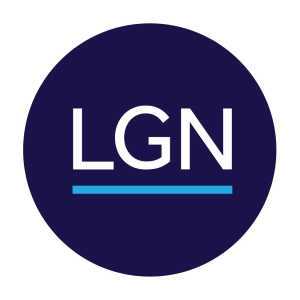News
The Charlie Nauen and PJ Pofahl University of Minnesota Diversity Scholarship Helps Law Students
/in News /by James McEwenUncategorized
Absentee Voting for Minnesota’s Primary Election – What You Need to Know
/in COVID-19, COVID-19 Business Resources, COVID-19 Federal Government Updates, COVID-19 Municipal Resources, COVID-19 State Government Updates, Uncategorized /by dwilliams@razorrank.comNews
LGN Associates Laura Matson and Arielle Wagner Moderate MSBA ENRE/MAIBA CLE on Tribal Food and Resource Sovereignty
/in News /by dwilliams@razorrank.comCOVID-19
LGN FEDERAL UPDATE: JUNE 1, 2020
/in COVID-19, COVID-19 Business Resources, COVID-19 Federal Government Updates, COVID-19 Municipal Resources, COVID-19 State Government Updates /by dwilliams@razorrank.comCOVID-19
LEGISLATIVE ALERT: WALZ ANNOUNCES PLANS FOR OUTDOOR DINING, LIMITED OCCUPANCY SALONS
/in COVID-19, COVID-19 Business Resources, COVID-19 Federal Government Updates, COVID-19 Municipal Resources, COVID-19 State Government Updates /by dwilliams@razorrank.comNews
LGN Partner David Asp to Speak at the 2020 Upper Midwest Immigration Law Conference
/in David W. Asp, News /by James McEwenCOVID-19
LGN FEDERAL UPDATE: MAY 18
/in COVID-19, COVID-19 Business Resources, COVID-19 Federal Government Updates, COVID-19 Municipal Resources, COVID-19 State Government Updates /by dwilliams@razorrank.comNews
Data Breach Class Actions: Practical Perspectives on Motions, Discovery, Certification, and Settlements
/in News /by James McEwenCOVID-19
LGN FEDERAL CORONAVIRUS UPDATE
/in COVID-19, COVID-19 Business Resources, COVID-19 Federal Government Updates, COVID-19 Municipal Resources, COVID-19 State Government Updates /by James McEwenPractices
Practices Cont.
- Federal Government Relations
- Government Representation
- Health Care Law
- Intellectual Property
- Mass Torts
- Personal Injury, Defective Drugs, and Medical Devices
- Political Law
- Products Liability & Consumer Fraud Litigation
- Real Estate & Land Use
- Securities Litigation
- State and Local Government Relations
- Tribal Government Representation
Minneapolis
Lockridge Grindal Nauen PLLP
100 Washington Avenue South
Suite 2200
Minneapolis, Minnesota 55401-2179
Phone: 612-339-6900
Chicago
Lockridge Grindal Nauen PLLP
1165 N. Clark Street
Suite 700
Chicago, IL 60610
Phone: 312-205-8968
Boston
Lockridge Grindal Nauen PLLP
265 Franklin Street
Suite 1702
Boston, MA 02110
Phone: 617-535-3763
